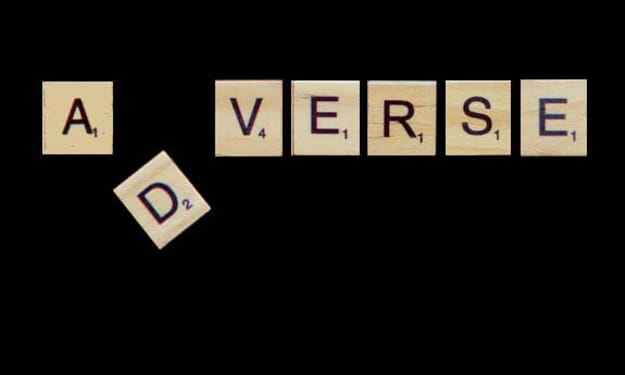
If I am ever away from my native north-east England, my accent stands out. On hearing a Tyneside twang, the response of many people is to attempt the most famous, and overused saying in the Geordie phrase book, why aye, man, usually in an accent that bears no resemblance to that spoken by the good people of Newcastle.
I should stress at this stage that I am not a true Geordie myself, but rather a Northumbrian. However, being situated a mere twelve miles from the vibrant city of Newcastle-upon-Tyne, I, and my compatriots here in Blyth, speak in much the same way as folk in Benwell, Benton and Byker.
In a recent online poll conducted by the language experts Babbel, the Geordie accent came top in the category, regional accents we wish we had, and in the category dialects we think sound the most fun, Geordie came joint top alongside Northern Irish.
But while the north-eastern brogue may be pleasing on the ear, within it there are certain words that are unique to the region, and these can cause confusion. For example, when a young boy asks his mother to “Hoy me clarty gansey in the wesh,” he is asking her to throw my muddy jumper into the wash. The odd thing here is that the word gansey derives from Guernsey, a type of woollen jumper worn by fishermen in the Channel Islands.
Here are a few such words. I should state that a hinny is a cross between a male horse and a female donley, but the word is used as a term of affection round these parts (a bit like chuck in Coronation Street).
Divvent = Don’t
This one is easy enough to grasp.
Harold pressed a button, and the lid of his silver cigarette case flipped open. He offered it to Sadie. “Cigarette?” he said.
“No thanks, hinny, Sadie said, “I divvent smoke.”
Canny = Pretty, Pretty Good
In Scotland, canny means wily. Here in the north-east of England, it has a multitude of applications.
Larry David’s Tyneside doppelgänger might utter the words canny, canny good. And that is a canny good place to start with this much used word. Canny generally means fairly good. If a query of “How are you?” is met with the reply “Canny,” then you know the other person is fine. But there are other forms.
A parent watching her child sleeping might say to her partner, “Aw, doesn’t she look canny.” In this instance, canny means cute or nice.
After Tom was hit in the face by a cricket ball, Eddie commented, “You’ll have a canny black-eye in the morning.” In this case, canny means substantial or significant.
Then there is that delightful Geordie phrase, gan canny, which means go carefully. Canny can also mean to perform a task carefully or gently.

Wrang = Wrong
Round here, something that is wrong is wrang, with the a sound being slightly elongated. This is why this, and similar words are often spelled with a double a, i.e., wraang, just to allow that a to be stretched a little. So, in 1993, north-eastern cinemagoers might have discussed the merits of the animated film, The Wraang Troosers.
But the best wrang-related tale is this.
After performing great heroics to save a pit pony from drowning, a Newcastle coal miner was invited to a feast in his honour at the home of the local mayor. As the celebrated guest drank tea, the mayoress herself approached, carrying a multi-tier cake stand loaded with fancies. “Would you like a cake, Geordie,” she said in her poshest voice, “or a meringue?”
“Nar, yer right, hinny. I’ll have a cake,” the hero said.
I first came across that gag in a book, while on a camping trip with my parents, and I thought it was the funniest joke ever. If you’re struggling with the punchline, the pitman misheard or a meringue as or am I wrang, which he took to be “Would you like a cake, Geordie, or am I wrong?
We = You and I, Who, With
Probably the most confusing word in the Geordie lexicon is a very short one: we. Of course, it is used in its most obvious form, as in we went down to the sea, but there are other ways it is used that can cause confusion.
Those variants are sometimes spelled whee, or wee, but I have stuck to the two-letter version, because those variants are pronounced exactly the same as in we went down to the sea.
So, If I were to utter “We did that?” I might not be making a statement claiming joint responsibility for something, instead I could be asking who did that? Because we could mean who. Other examples include “We’s there?” in answer to knock-knock, “We’s going to the match tomorrow?” and, if there ever was a remake of the film Angel Heart that relocated to the north-east of England, a latter-day Harry Angel might say, “I know we I am.” I have even heard the question asked, “Did you see Doctor We last night?”
So much for who, now on to with.
When asked if he would like to go out for a few beers, the hard-up Geordie might reply, “What we, brass buttons?” We is pronounced exactly the same way as previous variants, but this time he asks what with? Here is another example.
On returning to their home, a Tyneside couple find that their dog has pooped on the carpet. The angry husband points at the mess, and demands of the dog “We did that?” Now, the (non-Geordie) dog is fairly certain that he had made the mess, but here are his master and his wife apparently claiming joint responsibility.
If you’ve been paying attention, you may be wondering what happens when a dyed-in-the-wool north-easterner asks who with? when both of these words can be pronounced as we. It’s not a common response, but I have heard “We we?”
The advent of the Nintendo Wii added another can of beans to the stew. When young Geordie learned via a friend that his girlfriend had been playing tennis on the Wii with someone at the youth club, he wanted to know who her opponent was.
“Why, we was she we on the Wii?” he says. We (who), we (with), and Wii (game console) are all pronounced in exactly the same way, but his friend understood the sentence perfectly, to mean “Well, who was she with on the Wii?”
Confused? Why aye, man.
About the Creator
Joe Young
Blogger and freelance writer from the north-east coast of England






Comments
There are no comments for this story
Be the first to respond and start the conversation.